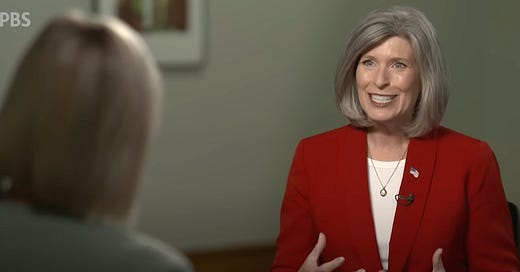
How Bad Was Feds' Initial Response To Coronavirus, On A Scale Of One To 'Let's Not Test Anybody Ever'?
At least there'll be some dramatic montages in the movies.
Look, we don't want to bum you out too much, but you should probably read two major stories from the New York Times and Boston Globe, detailing how long delays in coronavirus testing probably led to the disease spreading. The Times looks at a group of researchers in Seattle who, when coronavirus started showing up in the US in January, were sitting on a huge number of nasal swabs taken as part of a flu study, but weren't allowed to test them for coronavirus because they didn't have the proper permissions and lab certifications. Eventually, one of the lead researchers, Dr. Helen Y. Chu, went ahead and ran rogue tests, and yep, found the virus in several samples.
The Boston Globe story tracks how the coronavirus spread during and after a professional conference for the biotech company Biogen. Following the two-day conference in late February, 70 people linked to the meeting have tested positive for the virus, making up the vast majority of the 92 coronavirus cases in Massachusetts (as of Tuesday). Plus there are a bunch of other cases that emerged after attendees went home from the conference. Confirmed cases cropped up in multiple states and in Norway, and there are "suspected cases in Germany, Austria, and Argentina." Both stories leave you wondering how this all could have played out differently if the US public health infrastructure had been on top of its game. And both should make the government rethink how it will respond to future disease outbreaks. No, not with bigger tax cuts.
In Seattle, Dr. Chu and her colleagues had been collecting thousands of nasal swabs as part of a flu study of communities all around the Puget Sound area. So when the first coronavirus diagnosis in the US was made in Washington, Chu thought it would be a terrific idea to test all those samples for the new virus. But there were a number of problems with doing that, chiefly because of how medical research normally works. The informed consent forms all the subjects had signed only gave permission for their snotgoblins to be tested for flu, not for coronavirus, and the forms didn't say anything about releasing results outside the lab Chu and her colleagues were working with.
To test the samples, Chu's team needed permission from state and federal health authorities, and no matter where the researchers tried to cut through the red tape, they had no luck. And yes, Chu is very much aware why the regulations are necessary to protect test subjects' health and privacy, but on the other hand, here's an emergency right in Seattle, and her team had a wealth of potential data from people who already had flu and flu-like symptoms.
We won't go into all the frustrations and roadblocks here; you really should read the whole thing. But once Chu decided, on February 25, to just go ahead and run tests on some samples, they turned up coronavirus right away in a sample from a Seattle teenager.
A technician in the laboratory of Dr. Lea Starita who was testing samples soon got a hit.
"I'm like, 'Oh my God,'" Dr. Starita said. "I just took off running" to the office of the study's program managers. "We got one," she told them. "What do we do?"
Members of the research group discussed the ethics of what to do next.
"What we were allowed to do was to keep it to ourselves," Dr. Chu said. "But what we felt like we needed to do was to tell public health."
Luckily, the state lab had also gotten permission to test, and it confirmed the kid was infected.
The teenager, who had recovered from his illness, was located and informed just after he entered his school building. He was sent home and the school was later closed as a precaution.
And then the feds told Chu to stop the unauthorized testing, even though there still weren't enough testing kits for all the suspected cases. A day later, the officials partly backed off and allowed limited testing of new samples, as long as the team updated its consent form to say results might be shared with local health authorities. But none of the previous samples were to be tested.
Last week, the board running the Seattle Flu Study decided it would be unethical not to test the existing samples, so they started testing again, and yes, more cases were found and reported to the public health folks. But then Monday, state regulators told Chu and her team to stop until the lab gets the proper credentials, which could take weeks.
The Boston Globe story is similarly disheartening, tracking the spread of COVID-19 during and after the "Biogen leadership conference" held February 26-27 at a swanky Marriott hotel on the Boston waterfront. By the weekend after the conference, which started on a Wednesday, Biogen people started getting sick. Saturday night,
One Biogen executive reported feeling sick, and planned to seek treatment at Massachusetts General Hospital in the morning, according to a person familiar with the company. That e xecutive was told on Sunday that a coronavirus test was not warranted under existing criteria, the executive told colleagues on Sunday.
Those criteria also led to people not "qualifying" for testing in Seattle in the early days of the epidemic, too. The Globe story would make for a hell of a montage in a suspense film, following people from the Biogen conference as they fall ill, often far away from Boston. One attendee went to an "executive round-table" in Florida, where they had some flu-like symptoms; while the company won't reveal anyone's test results, the outfit that held the Florida event warned those who attended that "one of the participants was in proximity to individuals who have tested positive for COVID-19."
In Boston, Biogen employees kept showing up at Massachusetts General or their own physicians, "only to be rebuffed because they did not meet the federal government criteria for a test," because while they had symptoms, they hadn't traveled to areas with an outbreak or had contact with a known COVID-19 patient. They simply were COVID-19 patients, but that didn't count yet. By late last week, testing was finally being made available, and Biogen publicly acknowledged its conference had been where the virus had spread.
Like the Times story, it's just chilling, and leaves you wondering how often such stories are being repeated all over the country. As of now, testing is still not as widely available as it needs to be -- exact figures for US tests to date aren't even available. For all the talk of our very best medical system, we're way behind the need. Compare that to South Korea, which is testing just short of 20,000 people a day now, allowing authorities to get people into treatment and to contain the disease's spread.
But as Rep. Clay Higgins (R-Louisiana) -- the "WHAR BOXES?" guy --put it at a hearing yesterday, we don't need to take aggressive measures like limiting "gatherings of free Americans," because AMERICAN EXCEPTIONALISM! "We are not Italy, we are not South Korea," said Higgins. "We're certainly not Beijing. We're not Hong Kong. This is America."
No damn competence for us , please. But the movie will sure be something to see.
[ NYT / Boston Globe / BBC / NPR / Marketwatch ]
Yr Wonkette is supported entirely by reader donations. Please help us keep the servers humming and the writers paid!












As long a 250 or fewer people come to your show...
It all sounds like how the Chinese government reacted to the first signs of an outbreak before they clamped everything down.